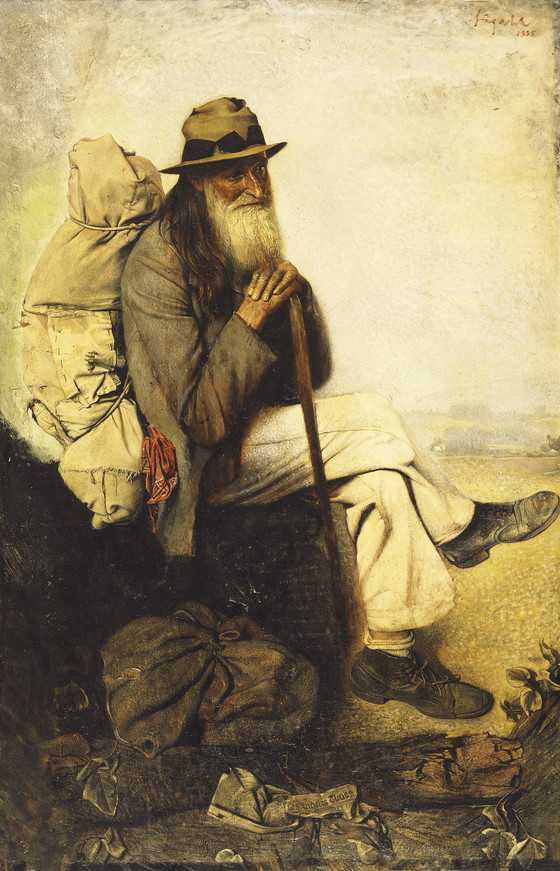
Wednesday – Passover
Friend and poet Norman Finkelstein recommended this Henry Weinfield poem for Passover, which begins today. It’s from Weinfield’s book A Wandering Aramaean (Dos Madres Press, 2012). As the poem’s epigraph informs us, a curious detail in a verse from Deuteronomy provides the title.
In the beginning there were no Jews, just people from present day Syria who migrated to Egypt. The Jewish identity was forged centuries after the events described in Exodus, with Passover providing a retrospective narrative that has become central to the faith. Weinfield is more interested in his wandering ancestor and the vagaries of identity than in “the great nation” mentioned by Deuteronomy.
He likes the fact that this ancestor belonged to no nation, was promised no special destiny, and possessed no buildings to pray in. His only religion was music, which includes poetry.
Like Weinfield, the wandering Aramaean didn’t see himself as one of a chosen people, he didn’t lift up triumphal hymns, and he didn’t regard himself as superior to those around him. In other words, he didn’t fit comfortably within labels, all of which Weinfield imagines him rigorously refusing.
While Weinfield doesn’t accept a narrow Jewish identity, however, he walks the border between Jew and non-Jew. The Passover story, after all, involves wandering—40 years of it—which is why it is so central to a people that are defined by the diaspora. Weinfield is Jewish after all.
He wants the reader to know, however, that he will be never be “reconciled” to any static existence, whether in Egypt or in Judaea. Even in the Jewish afterlife, he says, “the shades complain.”
Once could say (to borrow a word from George Herbert’s “The Pulley”) that he is marked by eternal restlessness. Once a wanderer, always a wanderer.
My Father Was a Wandering Aramaean “. . . you shall make this response before the lord your God: ‘a wandering aramaean was my father; he went down into egypt and lived there as an alien, few in number, and there he became a great nation, mighty and populous.’” (Deuteronomy 26: 5) My father was a wandering Aramaean, Bordering upon the Gentile and the Jew. The promised land was never his to stay in, He had no church or synagogue to pray in – music was the religion that he knew. My father was a wandering Aramaean, enlightened by the darkness that he found. He never lifted a triumphal paean: No one is chosen – Hebrew, Greek, or pagan – The self-same cloud encompasses us round. My father was a wandering Aramaean, not reconciled or reconcilable. Whether in egypt or the deep Judaean Plain, or sheol where the shades complain, The rigor of his refusals rings out still.
Previous Passover Posts
Harvey Shapiro: Drawn Forth to Eat the History Feast
George Moses Horton: Must I Dwell in Slavery’s Night?
Norman Finkelstein: Blood on the Door Posts
Norman Finkelstein: Death and Miracles and Stars without Number
Nicole Krauss: Replacing the Temple with the Torah
Muriel Rukeyser: The Journeys of the Night Survive
Primo Levi: A Night Different from All Other Nights